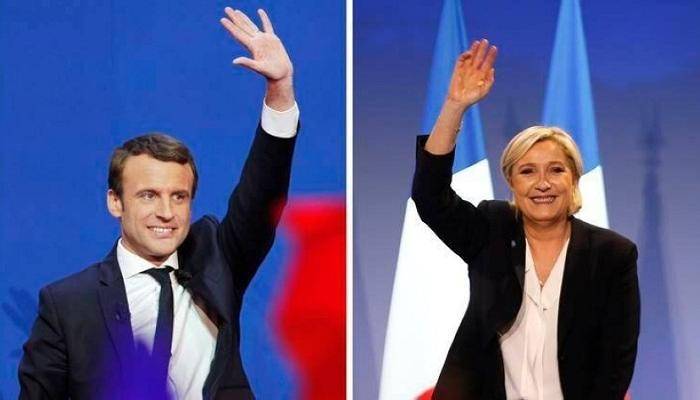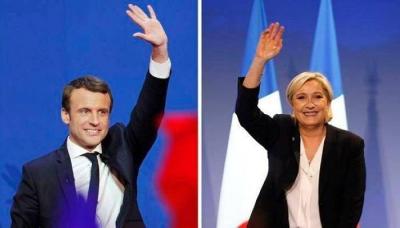The scenario of the French presidential elections of 2017 is repeating itself, with Emmanuel Macron and Marine Le Pen advancing to the second round of the contest. The winners in the first round now have 15 days to persuade the remaining voters—those who abstained or voted for other candidates—to support them in the upcoming round. The far right, represented by Marine Le Pen, is closer than ever to the Élysée Palace this time, and Macron will need to convince both right and left-leaning voters to choose him, especially since candidates from these parties have called for a united front against the far right, known as the "Republican Front."
The results of the first round of the French presidential elections ended weeks of suspense regarding the identities of the two winners. The incumbent president, Emmanuel Macron, won with 27.6% of the votes, while Marine Le Pen garnered 23.0%, according to initial estimates. The second round will take place on April 24. The far-left candidate Jean-Luc Mélenchon, once seen as a major contender, finished third with 22.2% of the votes, while the far-right candidate Éric Zemmour, who displayed significant ambitions during the campaign, received 7% of the votes.
The results aligned closely with what polls had indicated throughout the campaign, which consistently showcased Macron and Le Pen as the likely winners. Although Mélenchon did not achieve the surprise that some had anticipated, he succeeded in solidifying his party, "La France Insoumise," as the third political force in the French political landscape.
The biggest loser in this election was the traditional right, represented by candidate Valérie Pécresse, who only received 4.7% of the votes, while the Socialist Party, once one of the major political forces in the country, collected only 2.0%.
The current political landscape suggests that far-right representative Marine Le Pen, who was defeated by Emmanuel Macron in the second round of the 2017 elections, is closer than ever to the Élysée. She enjoys a substantial reserve of votes, as indicated by the support from voters who backed Éric Zemmour, especially since Zemmour has called for his supporters to vote for her.
In this context, Pascal Perrineau stated on the "Arte" website that "in 2017, Marine Le Pen did not have a large reserve, but now she can go much further. Macron will have to lure votes away from Jean-Luc Mélenchon." A victory for Le Pen could lead to radical changes in France's domestic and foreign policies, considering that the "National Rally" candidate adopts positions against European integration and has repeatedly expressed her desire, for example, to withdraw France from NATO's integrated command.
With these results, the scenario of the 2017 presidential elections recurs, raising once again the necessity of building a "Republican Front" against the far right, as has been the approach of traditional political forces from both the left and the right. Macron will first need to convince abstainers, estimated at 26%, to head to the polls in the second round, along with a significant portion of left-leaning voters to avoid boycotting the upcoming round.
In this regard, Rifiq Al-Assal told France24: "The activists of 'La France Insoumise' will either vote for Macron or abstain. We do not vote for the right. Macron must abandon some of his harsh neoliberal policies to convince the left-wing populace to vote for him." Several candidates who lost in the first round did not hesitate to show their support for Macron in the second round. Communist candidate Fabien Roussel, Socialist Anne Hidalgo, and Yannick Jadot from the Greens all called for blocking Marine Le Pen. Traditional right candidate Valérie Pécresse stated that she would "consciously" vote for Emmanuel Macron.
Among Macron's circle, sources acknowledge that the "Republican Front" that benefited him in 2017 is no longer a given. Aware of the risk, Macron called for "mobilization" against the far right at the beginning of April. He understands that "nothing is decided yet" for the elections scheduled for April 24, adding in a speech to his supporters, "The debate we will engage in for the next 15 days will be crucial for our country and Europe." Jean-Luc Mélenchon emphasized in a speech to his supporters the need to "not give a single vote to Marine Le Pen" in the upcoming round.




